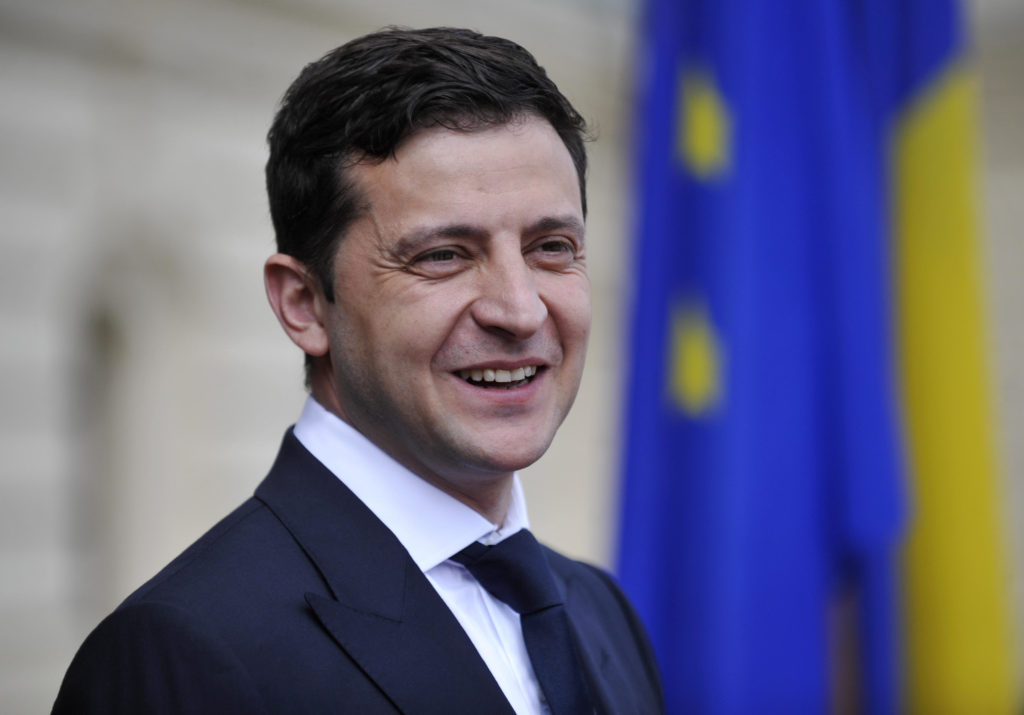U.S. President Joe Biden’s White House meeting with Ukrainian leader Volodymyr Zelensky put ties between two longstanding allies back on track after a rocky interlude, but a wary Russia, watching from the sidelines, made it clear not to expect any breakthrough for some time in the two neighbours’ fraught relationship.
Zelensky was effusive about the meeting, pointing to reaffirmations of support for Kyiv – chief among them that Washington would never accept Russia’s annexation of Crimea in 2014, a call for Russia to end violence in Ukraine’s separatist-occupied Donbass region and U.S. support for Ukraine to choose the foreign policy it wished, including its drive to secure NATO membership – anathema in Moscow.
“I’m not sure if this was a question of chemistry,” he told Ukrainian media. “The meeting was a productive one. It wasn’t all sunny, but we had what I would call a man-to-man talk. I only heard pleasant things from the president. He understands that things are difficult.”
Ukraine indeed had plenty to show from the meeting — $60 million in additional military aid including Javelin anti-armour systems and other “defensive lethal and nonlethal capabilities”, plus $12.8 million in help to contain the COVID and $463 in support for programmes to entrench human rights and democratic institutions.
The United States has pledged more than $2.5 billion in military aid to Ukraine since the events of 2014.
What Ukraine got and didn’t get
Commentators were quick to point out what Ukraine did not get – a U.S. commitment to impose new, tougher sanctions on Russia if it used energy to put pressure on Ukraine once the nearly completed Nord Stream-2 undersea pipeline starts carrying Russian gas to Europe.
Nor was there any U.S. commitment to become involved in stalled efforts to end the seven-year rebellion by Russian proxies in Donbass. And they recalled that the meeting – delayed still further by the chaotic pullout from Afghanistan – took place after Biden met Kremlin leader Vladimir Putin and German Chancellor Angela Merkel – and not before as Zelensky had requested.
“The…meeting between presidents Biden and Zelensky was timely, reassuring, and forward-looking,” wrote Daniel Fried of the Atlantic Council think tank.
“It was timely because, coming immediately after the Afghanistan debacle, it gave the U.S. a platform to address fears in Ukraine and beyond that America’s chaotic retreat from Afghanistan was part of a broader withdrawal, as Moscow and Beijing have suggested.”
The talks underscored a considerable improvement in relations hit by Donald Trump’s ambivalent attitude to Kyiv and allegations that he had tried during a telephone conversation with Zelensky to persuade the Ukrainian leader to investigate the activities of Biden’s son in Ukraine as the 2020 U.S. presidential election campaign unfolded.
Other differences between Kyiv and Washington focused on Ukraine’s failure to tackle corruption and overhaul its judicial system. Several reforms and amendments to legislation have been approved in recent months. And the talks in Washington underscored an agreement on both sides that Ukraine would proceed quickly with the appointment of a new specialised anti-corruption prosecutor.
Kremlin dismissive of Washington talks
Russia wasted no time in dismissing both the outcome of the talks in Washington and the chances of a meeting sometime this year between Putin and Zelensky.
Putin told an economic forum in Vladivostok that protracted poor relations with Ukraine were an aberration.
“I believe the situation, which we are facing today, is absolutely abnormal and unnatural,” Putin said. “Sooner or later, and it’s better if this happens soon, the sooner, the better, we will restore our relations with Ukraine in a full-fledged format.”
Kremlin spokesman Dmitry Peskov said he saw no basis for a meeting of the two presidents – particularly as Zelensky said Russia’s occupation of Crimea should be on the agenda and on that score there was nothing to discuss.
And additional U.S. military aid for Ukraine, he said, could have unpredictable consequences in the seven-year-old conflict with the separatists in Donbass.
“We believe this could potentially cause unpredictable actions by the Ukrainian side in terms of attempting to resolve the … Ukrainian conflict … by force. This is very dangerous,” Peskov said.
“…. To put it simply, we’re talking about a Ukrainian-American friendship against Russia. That is to say, they’re friends not for themselves, but against Russia. This … can only be a cause for regret.”
In April, when Russia massed tens of thousands of troops near the Ukrainian border for “exercises” it said were to counter Western hostility, Zelensky offered to meet Putin in Donbass “where the war is going on.”
Putin derisively proposed a meeting in Moscow but not to discuss Donbass and advised the Ukrainian president to talk directly to the Russian-financed separatists. Zelensky came to office suggesting he could end the war quickly by doing a deal with Putin – he has since argued that Ukraine’s only way to defend its interests is to secure NATO membership.
In any event, the U.S. support for Alliance membership was tempered. White House press secretary Jen Psaki told reporters the decision was not Washington’s to make on its own and the ex-Soviet state had to meet defence and other criteria before a membership bid could be considered.

